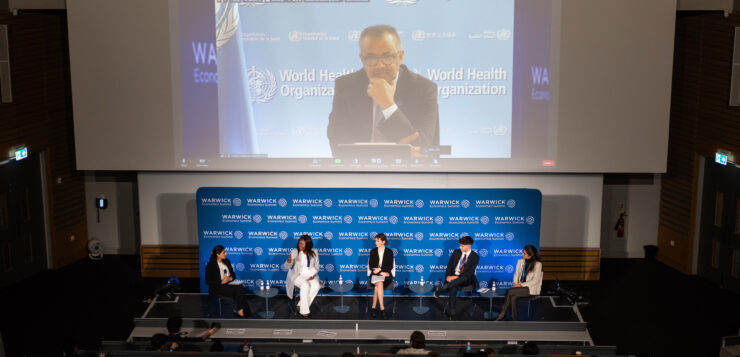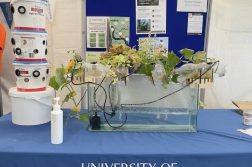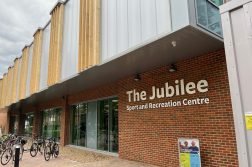For many of us, 2020 is a year we would rather forget. Memories of loneliness, fear, bereavement – or simply the desperate longing to be able to go on a walk without feeling like a criminal – are hardly the kind one calls to mind with a smile.
Yet such memories are vital for ensuring it does not happen again. As the World Health Organisation works towards creating a Pandemic Prevention, Preparedness and Response Accord, Director-General Dr Tedros Adhanom Ghebreyesus has been calling on young people to share their experiences of COVID-19 and perspectives on the agreement.
Participating virtually at the Warwick Economics Summit earlier this month, Dr Tedros explained how the accord, set to be sealed in May, has been designed to make countries more able to combat future pandemics, while also ensuring a more equitable distribution of vaccines. While the decision-making process has involved consulting a variety of different stakeholders, he stressed the importance of youth involvement given that “it’s likely [they]will face another pandemic in [their]lifetime”. The summit, held on the University of Warwick campus, provided the first opportunity for him to speak to young people directly.
As one of the student panellists speaking to Dr Tedros, I was keen to mention the impact of the pandemic on young people’s education. For the 2020 A-level cohort to which I belonged, grades were based on mock exam results. Aside from the initial stressful uncertainty over how this would work, it meant that for those who had not done as well as they had hoped during these practice exams, there was no chance to improve on those results. Given that the A-level results decided university entry, there were people for whom this change of assessment criteria was life-changing.
Starting university later that year was hardly the Freshers experience one dreams about. For me, as well as for some of the few people I had the chance to meet, homesickness was exacerbated when visiting home became illegal. Meeting people who could help you settle in and see the brighter side of university life was also hardly an option, leading to a heavy dose of loneliness.
What is more, maintaining motivation once we had been locked down at home with parents proved difficult. There was little contact with other students and hours of online lessons were harder to engage with. And when university did finally return to normal, the experience of sitting exams having not done any official ones since GCSEs was thoroughly daunting.
This concern with the impact on education was equally shared by some of my fellow panellists. Sergei, a student of law at UPF, Barcelona, also talked about the “hard transition to university” and the difficulties of only being able to stay in contact with people online. And for panellist Elisabeth, who was studying in Nigeria when the pandemic hit, lockdown meant she “lost one year of [her]education” as her university was unable to provide online teaching.
The effects of the COVID-19 pandemic on education did have some upsides, however. Here at Southampton, for example, it meant that both teachers and students became more flexible. Hard-to-arrange meetings or lectures can now be moved online without much difficulty. This flexibility was paralleled in the summit itself, which has in recent years broadcast to an online audience as well as an in-person one.
Back home, the lockdown in Bath (UK) and the surrounding area also proved to be an inspiring example of people’s willingness to help each other out in times of need. The community shop in my village began volunteer-operated delivery services to the vulnerable, for example. Furthermore, in Bath, the pandemic also led to important efforts to find accommodation for the city’s many homeless. While seemingly short-lived, the ‘Everyone In’ project at least showed that, if prioritised and given sufficient funding, rough sleepers could be helped off the streets on a mass scale.
Of course, these unexpected positives should not detract from the need to plan for a future pandemic. Currently, however, Dr Tedros admits that there have been some bumps in the road to drafting a satisfactory agreement. This is partly due to countries struggling to agree, though he is “confident they can find common ground”, but also due to misinformation. Many critics of the accord contend that it will give the WHO power over signatory countries, but according to Dr Tedros, such critics are “either uninformed or lying”. The accord does not state at any point that the WHO will be able to impose lockdowns, he assures, since “it’s sovereign states themselves who are writing the agreement”. To the director-general, “the agreement is itself an exercise of sovereignty”.
The role of young people in contributing to the agreement is therefore not just sharing their stories, but also combating such misinformation. In Dr Tedros’ words, “we need you to raise your voices, to tell your leaders that you want this agreement, you want this accord, […] to counter the lies”, starting by making sure that they themselves are well informed.
Discussing how best to spread the message, panellists were quick to point out young people’s affinity with social media. Such platforms can help messages countering misconceptions surrounding the accord to reach a wider audience.
In fact, the Warwick Economics Summit marked the launch of a WHO social media campaign encouraging young people to share their perspectives on the pandemic and the accord. Since then, the campaign has spread across the world. Anyone wishing to contribute can simply post a short video discussing their stories from COVID19 and why they think a pandemic accord is important, using the hashtags #AreWeReady and #PandemicAccord on Instagram, X or TikTok.
Recordings of the panel discussion are available on the WHO X account and will be released on the Warwick Economics Summit YouTube Channel. Tickets for the 24th summit in 2025 will be available nearer the time from the University of Warwick Students’ Union website.




